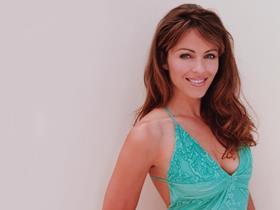
With world-renowned fashion designer VivienneWestwood and glamorous British models Lily Cole and Elizabeth Hurley all lending their signatures to a letter urging European ministers to ban neonicotinoids this week, the controversial subject shows no signs of fading.
Despite DEFRA insisting that the insecticides – which have been linked with damaging the health and populations of vital pollinating bees – pose no threat, separate studies continue to claim the complete opposite, leading Waitrose MD Mark Price to ban suppliers from using neonicotinoids, calling it the “right decision”.
So what’s the real truth about neonicotinoids? Chris Hartfield, horticulture adviser for the NFU, believes he has the answer. “There is no question that Waitrose has com- pletely jumped the gun with its decision,” he insists.
Hartfield has accused the European Commission of having a political anti-chemical agenda. After ministers failed to come to a majority vote in March, a suspension onthree neonicotinoids – clothianidin, imidacloprid and thiamethoxam – was rejected. But after a successful appeal the EC will make European ministers, including DEFRA secretary of state Owen Paterson, vote again on a ban this summer.
Hartfield added: “There are a number of studies that show if you dose bees with neonicotinoids in the laboratory you will see various harmful effects on their life cycles and behaviour. The issue is those impacts under realistic field conditions quite simply don’t exist.
“The DEFRA study clearly shows that under normal farming conditions bees are not harmed negatively.”
But despite the NFU and DEFRA’s blunt assessments, the likes of the European Food Safety Authority con- tinue to insist that the insecticides pose a considerable risk to bee health and damage the brains of the insects.
Whatever your view, it is clear that bees need protecting with 40 per cent of all food consumed by humans currently dependent on bee pollination. Furthermore, The British BeekeepersAssociation estimates that the number of bee colonies in Britain fell by 16 per cent last year.
Helen Browning, chief executive of the Soil Association, hopes it is now only a matter of time before a ban is issued. She explains: “Europe’s leading scientific experts have recommended suspending their use, the EC has agreed and the All-party Environment Com- mittee of the House of Commons has unanimously backed a ban.”
Browning took part in this week’s ‘March of the Beekeepers’ through Parliament Square – which was supported by several groups including the Envi- ronmental Justice Foundation, Green- peace and RSPB – and she hopes the protest sent out a clear message to the UK government.
She added: “Surely the combination of scientific expertise, political consensus and action by responsible business will be enough to persuade Owen Pater- son to stop DEFRA scoring another own goal, and instead act to protect our vital pollinators.”
However, grower David Norman, technical manager for the British Leafy Salads Association, insists that neo- nicotinoids serve as “vital seed treatments” in helping fight aphids for salad and brassica vegetable growers.
He explains: “The neonicotinoid group of compounds are commercially important for the control of aphids.
“The use of these neonicotinoid seed treatments considerably reduc- es the need for foliar-applied insecti- cide sprays, as up to four sprays may be needed to replace a single seed treat- ment as the sprays do not last as long.”
The debate looks set to rumble on for a while yet.
'Vote expected to be tight'
With a vote on the future of three neonicotinoids expected to be carried out on 29 April by the European Commission, the NFU’s Chris Hartfield admits a vote could “go either way”.






No comments yet